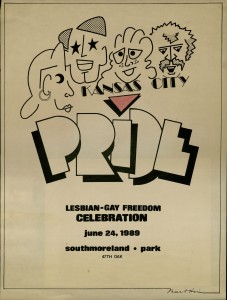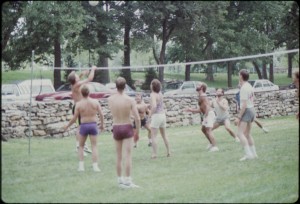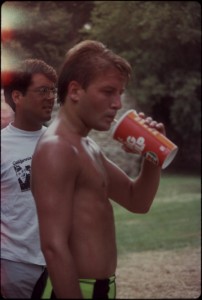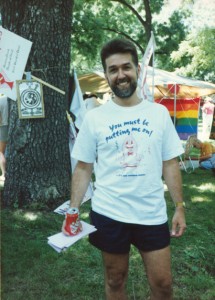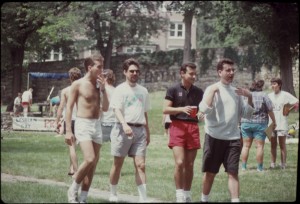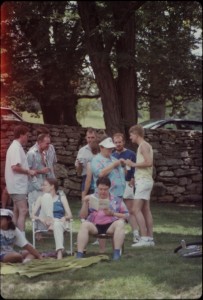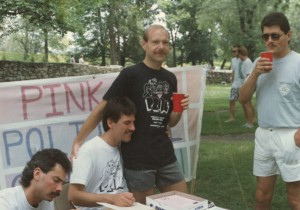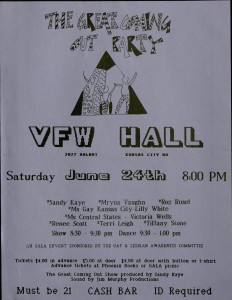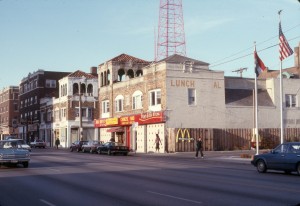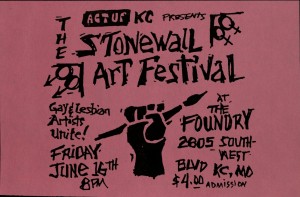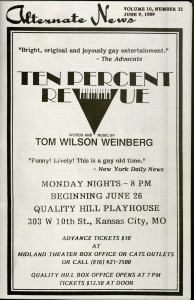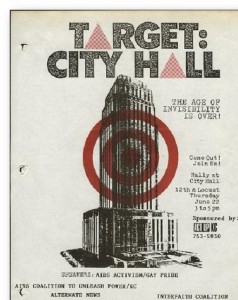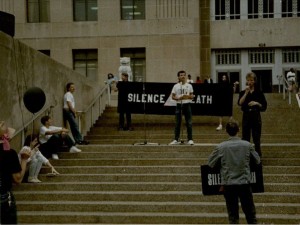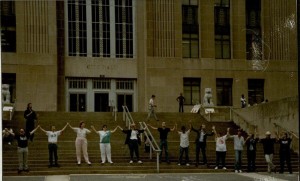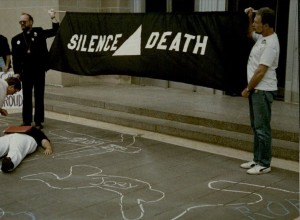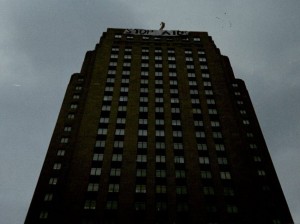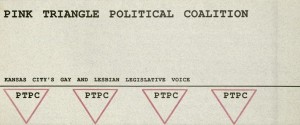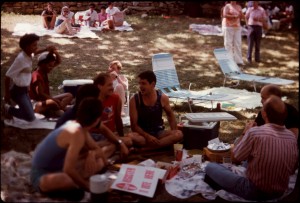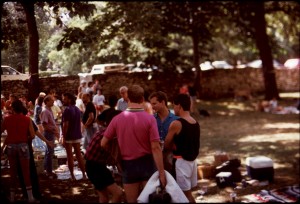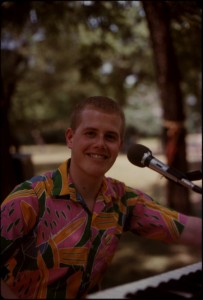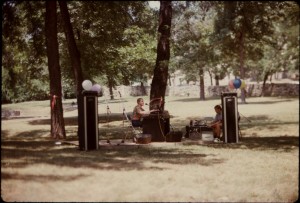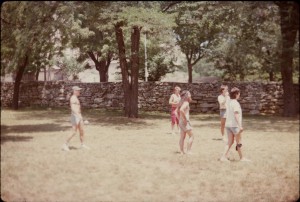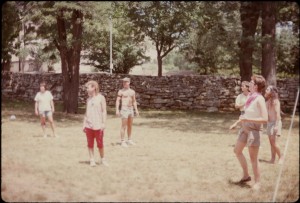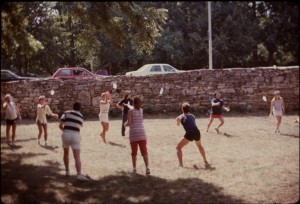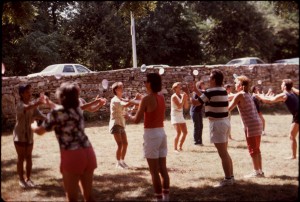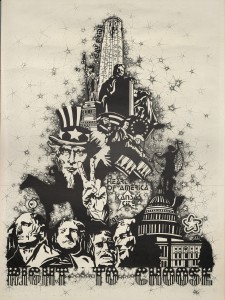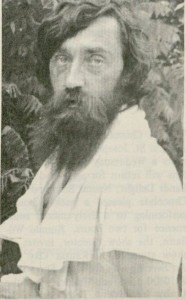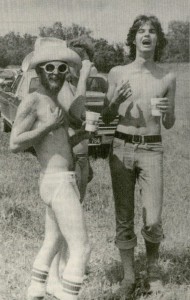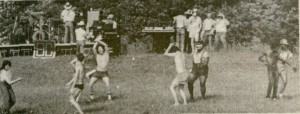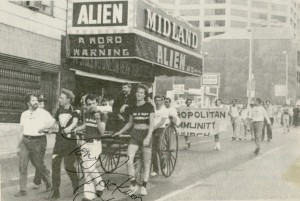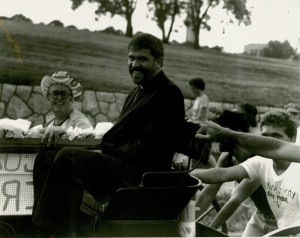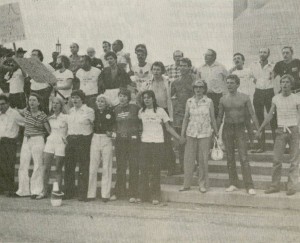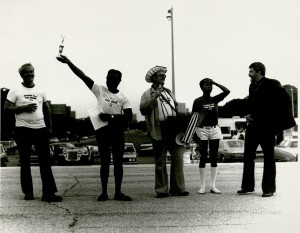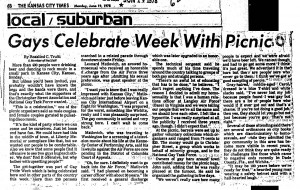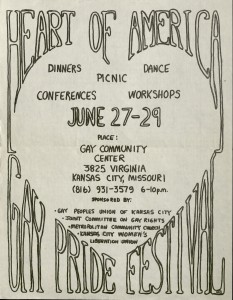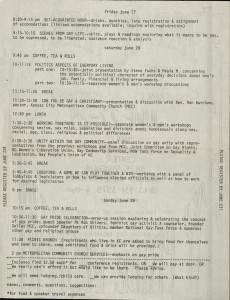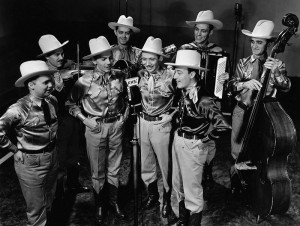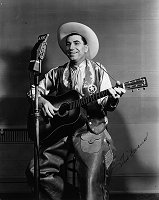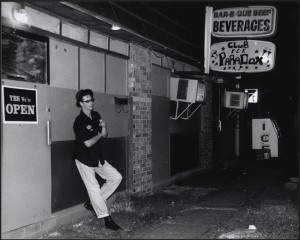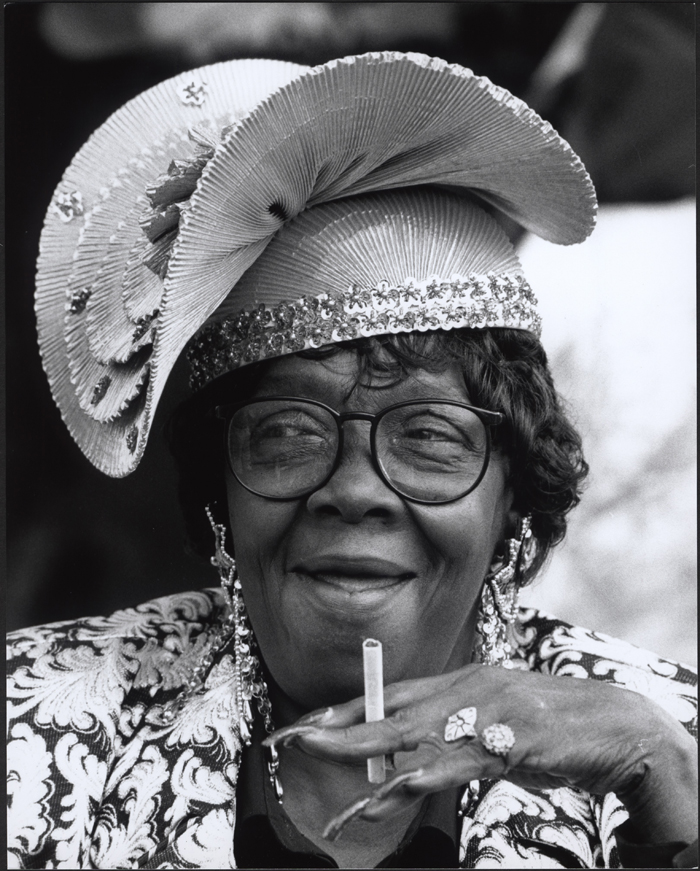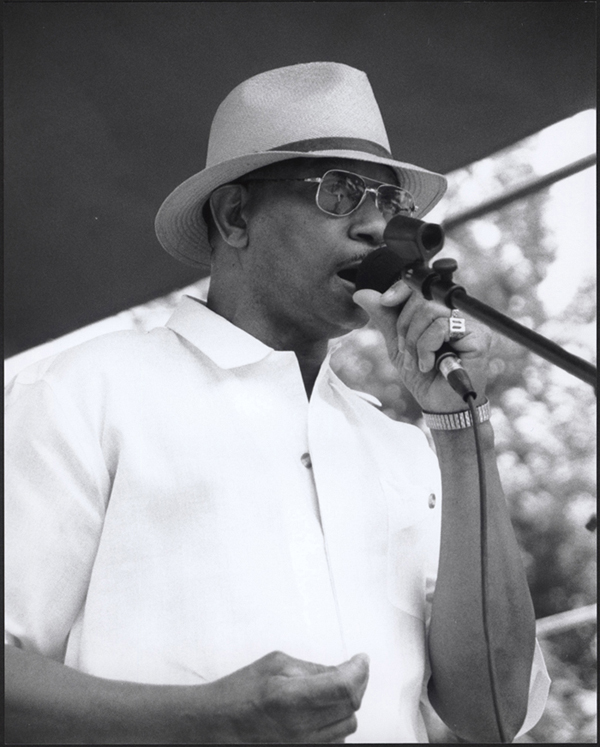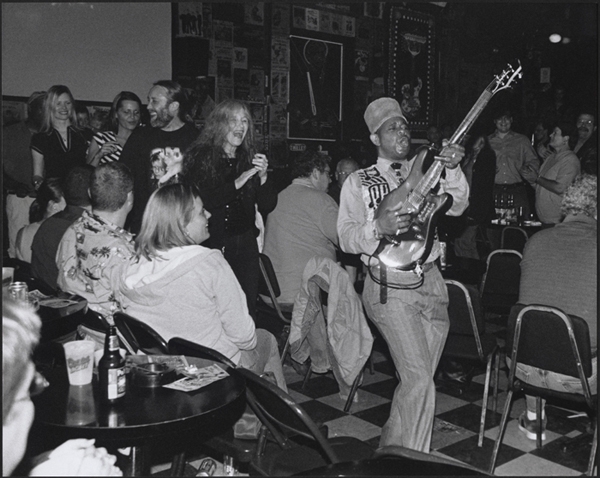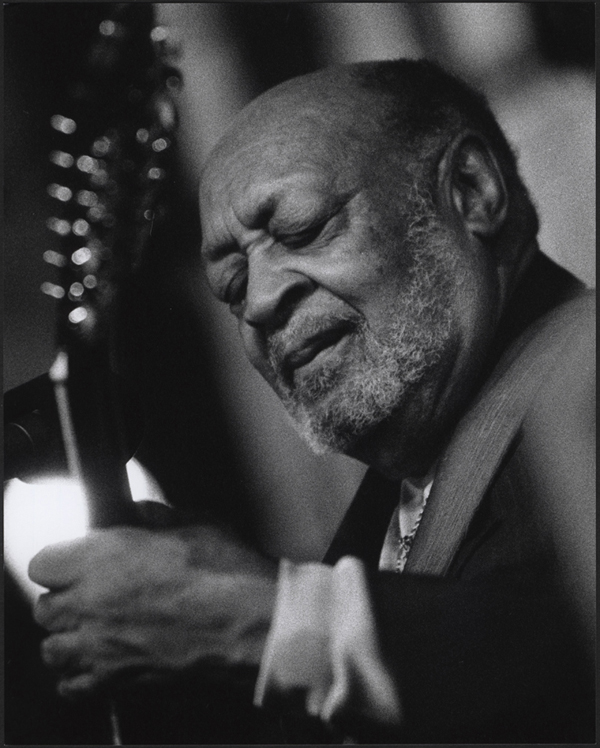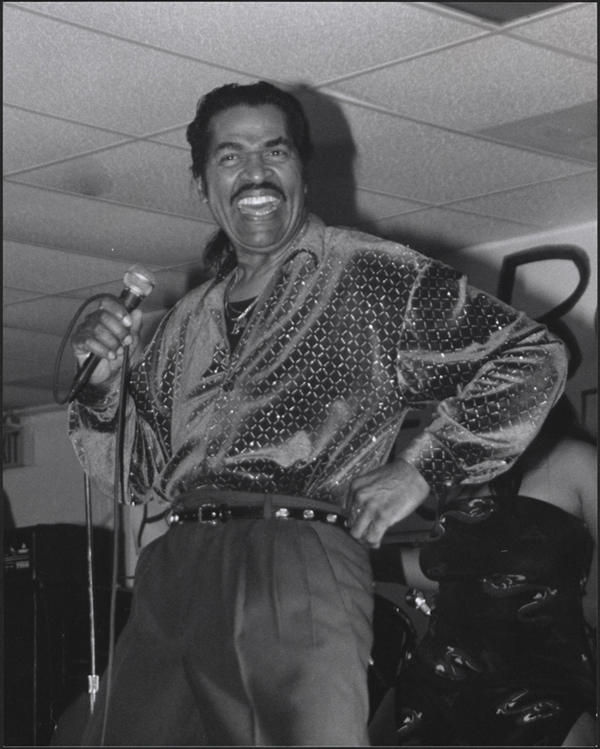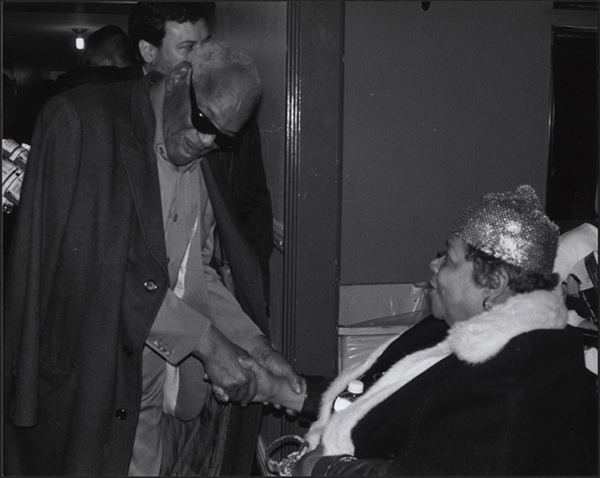After the impressive array of Pride Week activities, the 1989 Gay Pride Picnic proved to be the perfect way to celebrate GALA’s achievements and bring the community together. Once again held in Southmoreland Park, the Picnic mirrored that of the year before, in that it was grassroots in feeling and offered attendees casual forms of entertainment like volleyball and other games. Expansion of the event was evident in the roster of talent that performed, including
- The Blues Broads
- Linda Corbin
- Heartland Men’s Chorus
- Scott Hegenbart, making a repeat appearance
- Kansas City Women’s Chorus
- Peaches
- Rosalind Smith
- Excerpts from The Ten Percent Revue
- Two Turned On
As in previous years, performers were coordinated by Willow Productions.
Over 1,000 people attended the Picnic, a testament to the organizational and promotional abilities of members of GALA.
Saturday night, after the Picnic, organizers hosted a dance they called “The Great Coming Out Party”. It was held at the VFW Hall at 31st and Walnut, and included a drag show featuring entertainers such as Myrna Vonn, Sandy Kaye, Renee Scott, and Lilly White.
One of the reasons the 1989 Pride Celebration in Kansas City was so extensive was because it marked the 20th anniversary of the Stonewall Riots in New York City, seen by many as the inauguration of the gay rights movement. It was the first commemoration of Stonewall in 1970 that led to the evolution of annual Pride celebrations across the country, and during this special anniversary year Kansas City held its own in appropriately celebrating the historic event.

